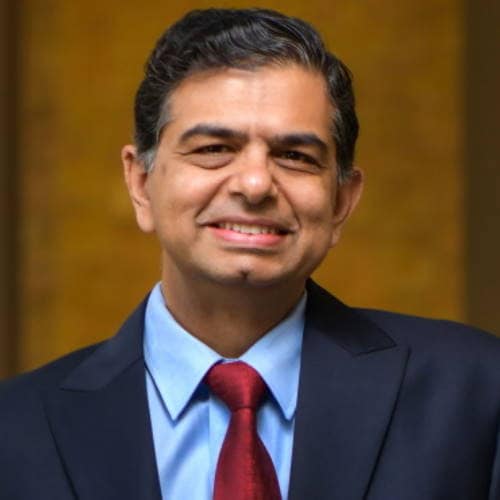Place trust at the heart of organisational strategy and culture
Download the report
A guiding tool to enable non-life insurers to stay ahead of the curve
While trust is strategically relevant for the growth of the insurance industry, it’s always been a challenge to measure it scientifically and systematically – from a lifecycle perspective.
To plug this gap, PwC India developed a trust barometer that serves as a diagnostic tool to help the non-life insurance industry diagnose its performance on the trust lifecycle across three primary areas:
Focusing on investigating the actions taken by the insurer to embed trust into its business strategies, policies, business and operational practices.
Focusing on examining the measures taken by the insurer towards enabling trust with customers, and the responses of customers.
Factoring in the response that the insurer’s performance in areas of embedding and enabling trust evokes from regulatory and quasi-regulatory bodies.
We applied the 53-parameter strong trust barometer to 12 non-life insurance companies that together comprise 75.5% of GDPI of the Indian non-life insurance sector to understand their performance around:
Embedding trust in their value frameworks, strategies and operations.
Enabling customer-friendly experiences.
Evoking trust within the regulatory architecture.
Our statistical analysis revealed a strong correlation between trust and change in market share. The regression analysis conducted showed that trust explained the change in market share of non-life insurance players in a statistically significant manner. Most importantly, it revealed that a trust score below a certain level indicated the loss of an insurer’s competitive edge and market share.

❝In today’s interconnected world where disruptions are a norm rather than an exception, it is important to acknowledge that trust is at a premium. At PwC, our Purpose is to build trust as we help steer businesses across industries through the next stage of evolution. As the insurance industry in India scales up, we firmly believe that trust will be one of its key growth drivers. Non-life insurance businesses in particular will need to embed trust in their values, their customer acquisitions, retention and service strategies. To this effect, PwC India has developed a trust barometer that can enable such companies to diagnose their trust performance across the trust life cycle.❞
Sanjeev Krishan, Chairperson, PwC in India

❝In the non-life insurance space, it is critical to bridge the trust deficit between the insurer and the insured, and build mutual trust. Our trust barometer can perhaps help such non-life insurance companies to generate actionable insights to plug this gap. Maintaining and growing this two-sided trust will be vital for the Insurance Regulatory and Development Authority of India (IRDAI) to achieve its commitment to enable ‘Insurance for All’ by 2047.❞
Amit Roy, Partner and Leader, Insurance and Allied Businesses, PwC India

❝Trust is an important lever for the insurance industry’s growth; but measuring it scientifically and systematically has always been a challenge. To plug this gap, PwC India has developed a trust barometer to enable the non-life insurance industry to diagnose its performance across the trust life cycle factoring in organisational strategy and values, customer experience and regulatory perceptions. Assessments based on the trust barometer could be used to identify the current gaps in the strategies and operational practices of the insurer towards building trust at the level of individual customers; and the steps to be taken by the insurer to leverage trust to achieve and sustain market leadership.❞
Raghav Narsalay, Partner and Leader, Research and Insights Hub, PwC India
Based on this analysis, the research outlines a set of four actions for non-life insurers to drive trust-based market leadership.
Place trust at the heart of organisational strategy and culture by designing policies, systems and processes to build value with trust.
A case in point is the top-scoring insurer in our analysis. This company has embedded trust adopting it as one of its core values. Moreover, the company makes it a point to share the benefits of trust with its employees and also shares key metrics such as claim settlement ratio numbers with its customers to win their trust.
Ensure that the insured person experiences trust during different legs of the insurance journey.
Insurers must leverage the power of technologies such as artificial intelligence (AI) to hyper-personalise insurance processes such as claim filing or contract evaluation. This is exactly how one of our top three scorers gained an edge over its competitors. The company has institutionalised a robust tech-based interactive machinery to ensure few customer complaints and swift resolution of those that arise. Other high-scoring insurers, particularly those in motor insurance, are leveraging AI for faster claim processing.
Display an agile mindset by developing forward-thinking solutions.
Display an agile mindset by developing forward-thinking solutions that meet evolving stakeholder preferences and changing customer needs, such as offerings in areas such as climate change and cyber insurance.
Engage proactively with regulators to stay ahead of compliance requirements.
Engage proactively with regulators to stay ahead of compliance requirements, such as those related to the Digital Personal Data Protection Act 2023 (DPDP). While most insurers display the same level of alertness towards addressing issues within the realm of insurance regulation, the top scorers differentiate themselves by ensuring better tax compliance and proficient addressal of audit queries.
The barometer was developed to serve as a diagnostic tool for assessing how insurance companies are performing on trust. It used publicly available resources to rate the companies on each of the 53 parameters on a scale of 1 to 3. A score of 1 meant that the performance with respect to that parameter was low or that data was not available in the public domain. A company scored 2 when its performance on that specific parameter was moderate, and a score of 3 indicated a high performance on the given parameter.